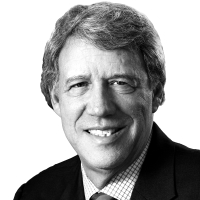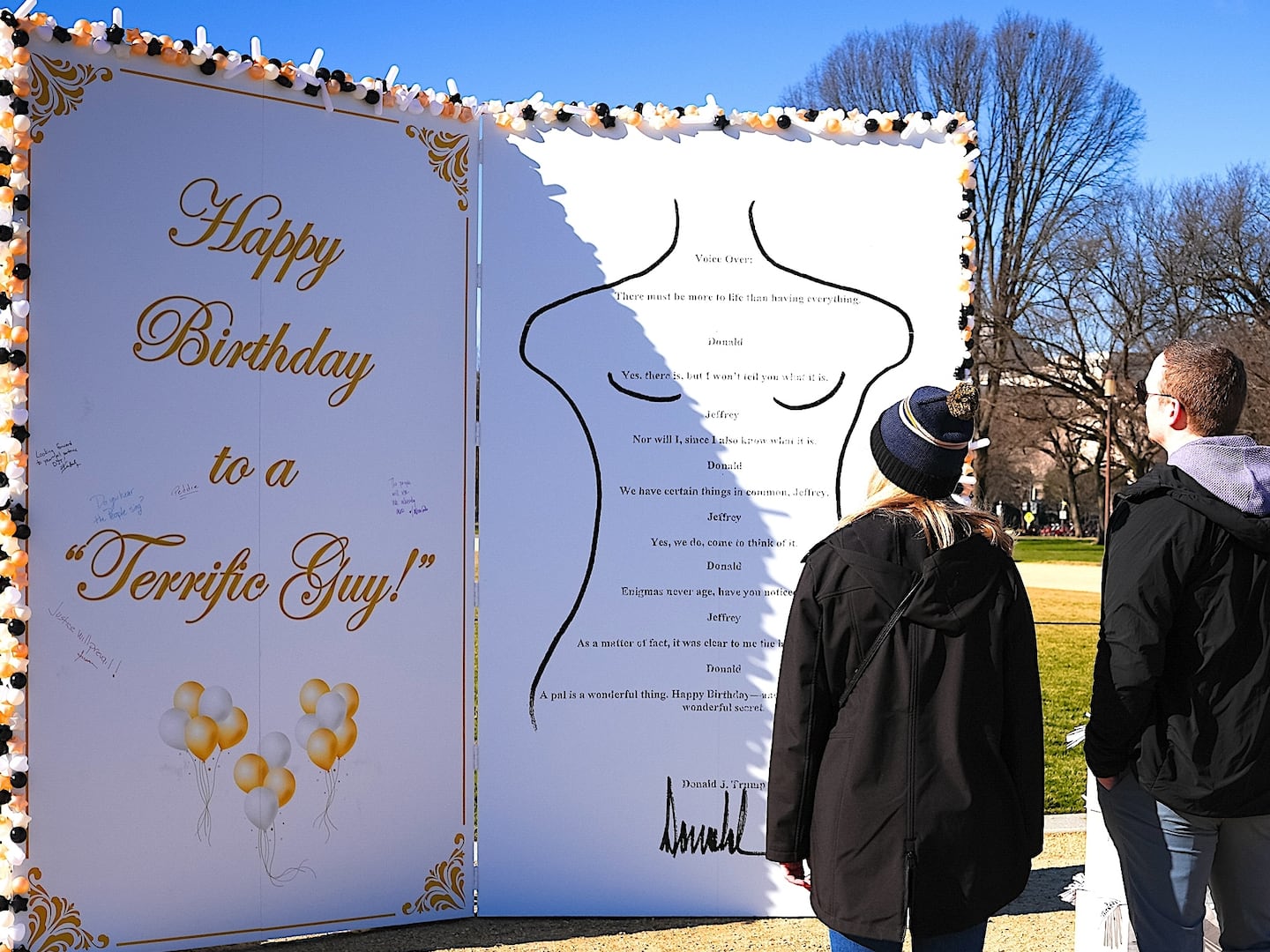In case after case, the five conservative justices on the Supreme Court have held unconstitutional all efforts—state as well as federal—to restrain the corrosive influence of limitless individual and corporate expenditures and contributions in our electoral process. They do this in the name of free speech.

In their view, the First Amendment absolutely guarantees the wealthiest Americans the right to spend as much as they like to manipulate the American political system to their advantage. According to these justices, as long as the wealthiest Americans do not directly bribe politicians to vote in their favor, the Constitution demands the flow of money is beyond regulation and that the rest of us must simply let the chips fall where they may.
This conception of the First Amendment and of the American constitutional system is truly perverse. By defining “corruption” so narrowly, these justices have missed the central point of self-governance—our elected representatives are supposed to be responsive to the will of the majority.
I don’t mean to suggest, of course, that our elected officials are supposed to slavishly obey the will of the majority. Sometimes, the majority is wrong, and it is the responsibility of our elected officials—and our judges—to reject certain policies even if they are supported by the majority.
What our elected representatives are absolutely not supposed to do, however, is to reject the values and preferences of the majority of our citizens in order to curry favor with a small cohort of extremely wealthy individuals who are eager to leverage their wealth to gain control of our government. And this is so even if their money corrupts the system in ways that are more subtle than overt bribes. The vast majority of Americans understand this point clearly. Our five conservative justices do not.
Of course, this would not matter very much if the wealthiest Americans shared the values and preferences of the majority of American citizens. If their values and preferences were aligned with those of most other citizens, then this would not be much of a problem. In fact, though, there is no such alignment. On a broad range of issues, there is in fact a sharp divergence between the views of the wealthiest 1 percent of Americans and the other 99 percent.
Recent surveys reveal, for example, that 78 percent of Americans believe that government should guarantee a minimum wage high enough to keep a worker’s family above the poverty level, but only 40 percent of the wealthiest Americans agree; 87 percent of Americans believe that government should spend whatever is necessary to ensure that our children can attend good public schools, but only 35 percent of the wealthiest Americans agree; 81 percent of Americans believe that a top priority of government should be to protect the jobs of American workers, but only 29 percent of the wealthiest Americans agree; 68 percent of Americans believe that government should take steps to ensure that every American who wants to work has the opportunity to do so, but only 19 percent of very wealthiest Americans agree; 78 percent of Americans believe that our government should ensure that students who cannot afford to go to college can nonetheless manage to do so, but only 28 percent of the wealthiest Americans agree.
Still, none of this would matter if the wealthiest 1 percent of Americans had only 1 percent of the influence in the political process. It is natural, after all, that people disagree about these sorts of issues, it is natural that rich people might hold different views on certain issues than people who are not rich, and it is quite proper for these issues to be worked out through the political process.
What is distressing, however, is that our political system does not work that way. Because of the extraordinary power of money in the electoral process, and thanks to the decisions of our five conservative justices, the very wealthiest Americans have a wildly disproportionate influence on our political process.
According to a recent Russell Sage Foundation study, almost 70 percent of wealthy Americans contribute regularly to political candidates, roughly half are in regular contact with members of Congress, and more than a fifth affirmatively “bundle” their contributions with other wealthy individuals. In the 2012 election cycle, a total of 99 Americans (mostly billionaires) provided 60 percent of all the individual Super PAC money spent by candidates.
Of course, none of this would matter if money did not affect outcomes. But it does. In 2012, 84 percent of the House candidates and 67 percent of the Senate candidates who spent more money than their opponents won their elections. Although money cannot dictate the outcome of elections, it matters, and it matters a lot—which is why candidates spend inordinate amounts of time scrambling to raise it and why the wealthiest Americans spend it so “generously” to elect their favored candidates.
But even this might not matter if our elected representatives disregarded the source of their campaign funds and, once elected, sought to represent the interests of their constituents—rather than the interests of their largest donors. Unfortunately, recent research (PDF) by the political scientists Martin Gilens of Princeton University and Benjamin I. Page of Northwestern University shows that it doesn’t work that way.
To the contrary, what they found is that, although average Americans tend to get the policies they want when those policies correspond with the interests of the wealthiest Americans, when their views diverge from those of the wealthiest Americans, they usually lose and the preferences of the wealthiest Americans carry the day. Most of the time, in other words, the 1 percent gets its way. Indeed, as Gilens and Page observe, when the preferences of the average American conflict with the preferences of the top 1 percent, “the preferences of the average American appear to have only a miniscule, near—zero,… impact upon public policy.”
In rather sobering terms, Gilens and Page conclude that, although Americans “enjoy many features central to democratic governance, such as regular election, freedom of speech and association, and a widespread [opportunity to vote], we believe that if policymaking is dominated by powerful business organizations and a small number of affluent Americans, then America’s claims to being a democratic society are seriously threatened.”
And this, say our five conservative justices, is demanded by “freedom of speech.” This is so, they insist, despite the fact that the First Amendment was designed, first and foremost, to preserve, protect, and support an effective system of democratic governance.
As James Madison wrote in Federalist 52, the whole point of our system of governance is to make our elected officials dependent on the will of “the people”—not on the will of the “top one percent.” What we are witnessing is a severe and unprincipled corruption of the American political system, and it is mortifying that this corruption is being carried out not by self-interested politicians, but by the justices of the Supreme Court—in the name of the First Amendment. Can the irony really be lost on them?






